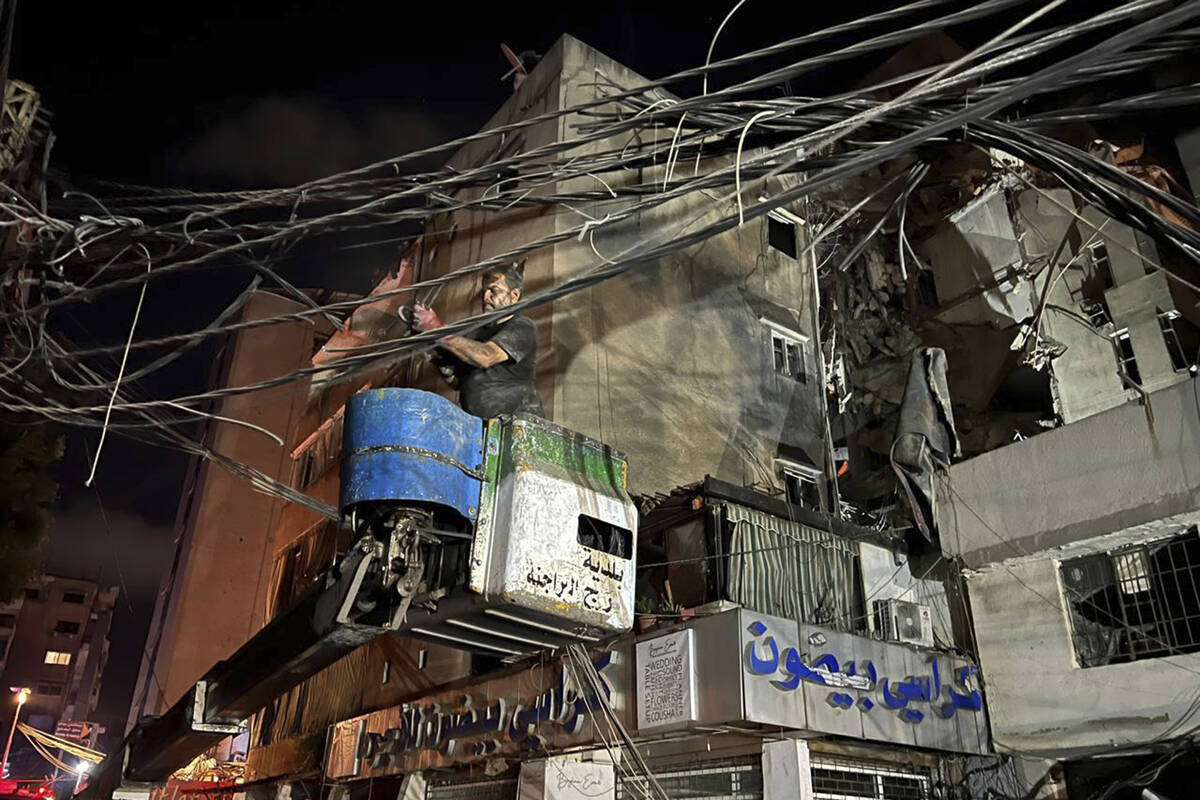Israelis: Airstrike in Beirut takes out terrorist commander

BEIRUT — Israel on Tuesday carried out a rare strike on Beirut, which it said killed a top Hezbollah commander who was blamed for a weekend rocket attack that killed 12 young people in the Israeli-controlled Golan Heights.
Hezbollah did not immediately confirm the commander’s death. The strike came amid escalating hostilities with the Lebanese terrorist group.
An Israeli official said the target was Fouad Shukur, a top Hezbollah military commander whom the U.S. blames for planning and launching the deadly 1983 Marine bombing in the Lebanese capital.
The official spoke on condition of anonymity because he was not authorized to discuss the details of the strike with the media. Shukur is also suspected in other strikes that killed Israeli civilians.
Though Hezbollah issued a rare denial of involvement in the rocket attack Saturday in the town of Majdal Shams, Israel is holding the terrorist group responsible.
“Hezbollah crossed a red line,” Israeli Defense Minister Yoav Gallant posted on the platform X shortly after Tuesday’s strike.
The two sides have been exchanging near-daily strikes for the past 10 months against the backdrop of the war in Gaza, but had previously kept the conflict at a low level that would not escalate into full-on war.
Lebanese caretaker Prime Minister Najib Mikati condemned the Israeli attack, saying it hit a few miles from one of the largest hospitals in the capital.
The office of Israeli Prime Minister Benjamin Netanyahu did not immediately release a statement, but minutes after the strike sent a photo of the prime minister with his national security adviser and other officials.
The airstrike on Beirut’s southern suburb of Haret Hreik damaged several buildings.
The strike hit an apartment building near a hospital, collapsing half of the targeted building and severely damaging one next to it. The hospital sustained minor damages, while the surrounding streets were littered with debris and broken glass.
Talal Hatoum, a local official with the Shiite Amal Movement, Hezbollah’s key political ally in Lebanon, said Tuesday’s attack marked a shift in the rules of engagement in the conflict because it caused a significant number of civilian casualties.
The strike in the Lebanese capital killed at least one woman and two children. Lebanon’s public health ministry said Tuesday’s strike wounded 74 people, some of them seriously.
The last time Israel targeted Beirut was in January, when an airstrike killed a top Hamas official, Saleh Arouri. That strike was the first time Israel had hit Beirut since the 34-day war between Israel and Hezbollah in the summer of 2006.
The United Nations’ special coordinator for Lebanon, Jeanine Hennis-Plasschaert, said in a statement that she was “deeply concerned” by the strike and called for “calm to prevail.”
Vice President Kamala Harris, who is expected to win the Democratic Party’s presidential nomination, said Israel “has the right to defend itself against the terrorist organization,” referring to Hezbollah, but added, “We still must work on a diplomatic solution to end these attacks, and we will continue to do that work.”
The U.S. Embassy in Lebanon issued a video Monday urging Americans to leave the country before a crisis begins.
Secretary of State Antony Blinken spoke with Israeli President Isaac Herzog on Monday, emphasizing the “importance of preventing escalation” and discussing efforts to reach a diplomatic solution to months of conflict.